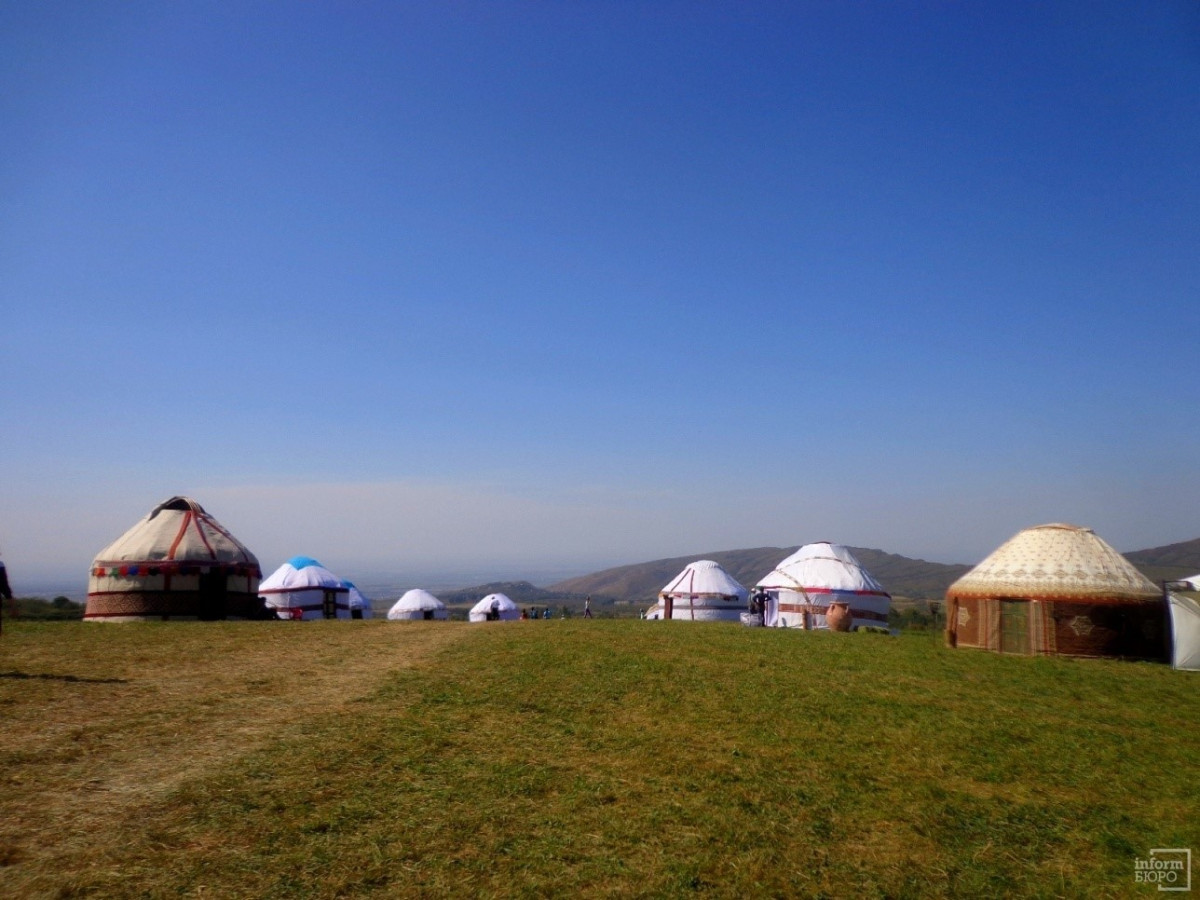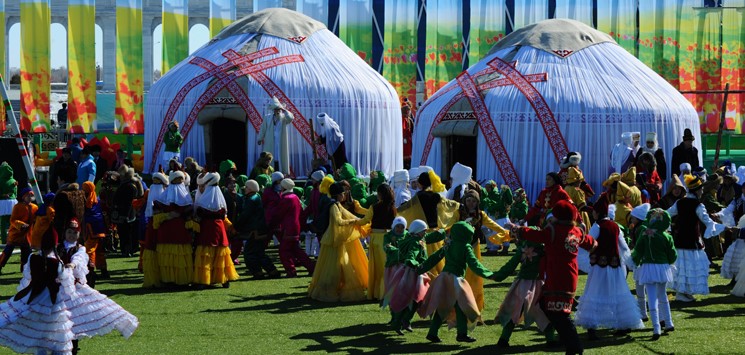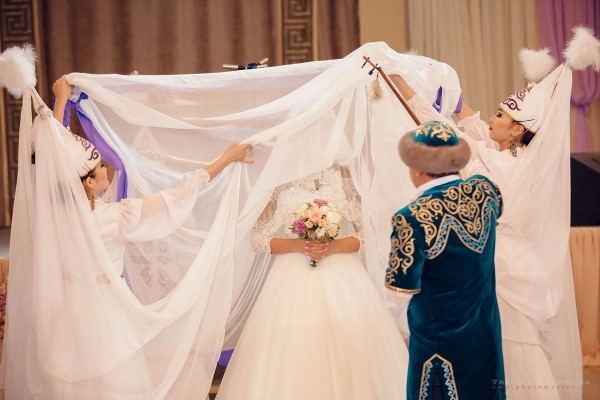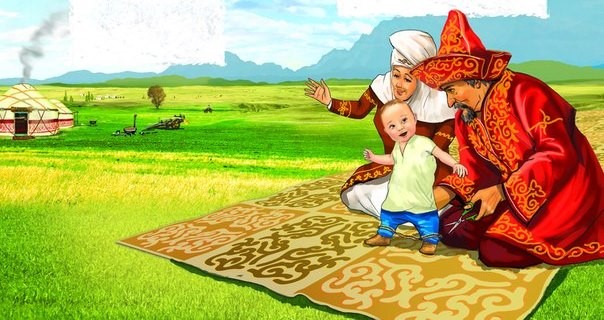Kazakh traditions for a foreigner
Hope you enjoy witnessing or taking part in some of them!
Despite the many challenges like the severe winters and small number of people speaking English, Kazakhstan’s cities are full of expats from all over the world working in so many different spheres of life like education, business, oil production and management. Moreover, the past three months were enlightened with the EXPO exhibition that attracted professionals from all the participating states in order to maintain the work of the international pavilions and whatsoever else.
While spending their time in Astana, Almaty, Aktau or elsewhere in Kazakhstan, those foreigners have to face the need to communicate with the locals either in work or in more informal circumstances. Those speaking Kazakh (pretty unlikely) or Russian have more advantages before the poor lads not understanding anything happening while they are invited into Kazakh homes. And this situation is very likely to happen, as soon as Kazakhs are extremely hospitable in their nature.
So, in case you are a foreigner living in Kazakhstan at this moment or looking for it in the nearest future, this article is going to explain you some of the most popular Kazakh traditions that you are likely to witness. It only needs to be mentioned that some of them have changed with the course of time due to the substitution of the nomadic life by the urban lifestyle of the majority of Kazakhs nowadays. In this regard some of the ancient traditions transfigured to their contemporary form.
First of all, let’s make a short historical overview of the routes of the traditions that modern Kazakhs keep and practice. Basically, Kazakh people used to be a group of tribes leading nomadic style of life and practicing Tengrianism – a religion focused on living in harmony with the natural universe.

Фото: Informburo
Nomadism together with the cattle breeding made the strongest impact on the people’s traditions and customs. The famous Kazakh hospitality takes roots from living in deserted steppes, as it was a vital necessity to host each other while travelling along the areas with nowhere to stop by.
Tengrianism, even if replaced later by Islam, can still be noticed in a strong respect to the natural forces like fire, water and earth. For example, Kazakhs believe in a strong cleaning ability of fire. While in Kazakhstan, don’t be surprised if you see a person making circles around a child’s head with a burning match, or doing the same with one’s new car or even house. The fire is believed to protect from the evil eye and bad luck.
As already mentioned, Islam has also made a strong influence on people’s lives. Celebrating Eid, sacrificing animals and giving things away for charity became a big part of Kazakhs’ everyday living. Moreover, most of the religious elements are so much close to the original believes of the people that they complement each other perfectly without a severe displacement.
Nationwide holidays
Anyway, leaving the history behind, let’s start with some big holidays that all your Kazakhstani colleagues and friends are going to celebrate during the year despite their nationality and religion.
Nauryz. This holiday is a common one for all the Turk nations living in Central Asia, Turkey, Iran and some others. Celebrated on 21-22 of March, it is a day of the spring equilibrium – the day when day is as long as night. Starting from this point, the days become longer and the spring is welcomed to the steppes after a long winter. The origin of the word itself means “new day”. Nomads used to celebrate the New Year on this day. Modern Kazakhs consider this holiday as one of the main ones during the year. Usually the government gives three days off, and when coming on the weekends it can even become 4 or 5 non-working days at a stretch. People try to see their families in other cities, gather together and have huge family celebrations at the festive tables. If invited to one, be sure you as a foreigner will be a special and honored guest. Kazakhs love their guests. As mentioned before, while living a nomadic life, guests always stood high as they brought news from far-away places and were considered as God’s envoys. Guests are cared with the best seats that are called “tor” (with a mellow “o”) – the ones with the backs towards a wall with the best sofas or pillows.
Alongside with the family celebrations, there are also lots of events organized by the city administrations. Yurts are installed, concerts and mass celebrations with people in national costumes can be seen all over the public areas. Don’t lose an opportunity to join and have fun!

Фото: ztb.kz
Kurban Ait (Eid). This holiday is purely religious and is celebrated by Muslims all over the world. Even being moderately religious, Kazakhs implemented some of the religious traditions into their everyday living, so even those non-religious follow the basic rules and celebrate the most popular holidays. Kurban Ait is one of them, coming right after Ramadan – a month of fasting. The three days of Kurban Ait are usually spent by visiting friends and relatives, together with hosting them at your house. People greet each other and say: “Ait kabyl bolsyn!” which means “Happy Eid!” These days all the resentments should be forgiven and the close ones in quarrels should reunite.
Another important moment about Kurban Ait is making an animal sacrificing. It should be done on the first day of Ait with the participation of a mullah who says grace. The animal should also be chosen wisely. It can be anything starting from a chicken and ending with a camel – all depends on the financial circumstances of a family. The only criterion is that the animal should be healthy and without any physical defects as it is believed that the animals one sacrifices during his living will lead him over the burning river towards the gates of heaven. Another thing is that the majority of the meat of the killed animal shall be given for charity. So, if you are invited for the Kurban Ait celebration, don’t be afraid to see the sacrificing or any other rituals.
Family celebrations
Family is something of a highest importance for a typical Kazakh. Everything happening be it good or bad always ends up in a big gathering of all the close ones. And the number of them can be quite significant. Here you can see some of the most important occasions and possibly find out for yourself how to behave if invited to one of them.
Wedding. Traditional Kazakh weddings are something magnificent, especially in the Southern and Western parts of the country where the traditions were altered in minimum. People throw a big party in order to celebrate their kids making a new family. All the relatives, friends, neighbors and colleagues are usually invited, and the number of guests can sometimes reach 200 or 300 people and even more. Everything usually happens in a fancy restaurant with people having a large meal, dancing and having fun with hired entertainers. Some traditional parts include a ceremony called “betashar” which literally means “the face opening”. At the beginning of the evening the bride is walked in with her face covered with a piece of cloth. Then the “tamada” – the master of the ceremony sings a song playing the dombra and naming the relatives and friends of a bridegroom. Those named receive a bow from the bride, put some money (as much as they wish) in a bowl and then can approach the bride to see her face. The ceremony takes its roots from the ancient times when the marriages were arranged by parents of the young people, and everybody (sometimes the bridegroom also) would meet the bride only at the wedding itself. So, betashar was a possibility for everybody to meet the new member of a family and for a bride to show respect for her new family. In these days, it is only a tribute to the traditions and a beautiful ceremony.

Фото: comode.kz
Kyz uzatu. If you are a friend or colleague of a bride, then don’t be amazed if you get invited to a party called kyz uzaty. Literally, it is a farewell party of a bride arranged by her parents, but actually it becomes kind of a pre-wedding with almost all the things the same. The bride wears a slightly modest dress and the number of guests can be smaller (sometimes not) with the majority of them being from her side. So, basically, if invited to the kyz uzatu, be ready for an almost wedding party.
Birth of a child. The birth of a child is another important moment in the life of Kazakhs. Basically, they love kids and the treatment of a child in the family is always special. The number of traditions and ceremonies connected to the children upbringing is countless. The majority of them take place in the first year of child’s life.
Kyrkynan shygaru. When a baby is born, Kazakhs believe that for the first forty days of its existence the baby’s soul is not properly fixed in the body and any bad word or even a stranger’s look can be a cause of a serious problem. That’s why for the period of these forty days the mother with her baby stays at home not going anywhere out and not letting anybody except for the family to come and see the new-born. As this time passes, on the fortieth day after the day of birth the ceremony called “Kyrkynan shygaru” is held. During it the godmother of a baby baths the baby, cuts its hair and nails. This day is considered something like an introduction of a child to the world. After this day the mother is free to go out and let anybody see the child, but anyway when it comes to the kids the Kazakhs are extremely superstitious. Protective amulets, especially in a form of an eye are popular among the parents.
Tusaukeser. This is another tradition connected to the children. When a baby starts to make efforts to walk, usually at around the first birthday, the parents hold a party where “tusaukeser” is made. For this purpose the most respective person is chosen from the parents’ relatives or friends. The person should be the one “having his both feet on the floor”, energetic, healthy and financially successful. On this day a rope is being corded between the kid’s legs and the chosen person cuts the rope with the scissors. The rope symbolizes all the challenges the baby is going to face during the life and this person helps him to overcome them. It’s also believed that the character of the person cutting the rope passes to the child and he or she will be as successful as that person. After the rope being cut the kid is free to walk and in front of him several things are laid. They are usually: money, a book, some musical instrument, or whatever else the parents come with. The object a child chooses the first is believed to predestinate his or her future profession.

Фото: kazakh-tv.kz
Birthdays – “mushel zhas”. The celebration of a birthday, especially for adults, is always up to the person. The only exception comes with some of the important ages called “mushel zhas”. The meaning includes the division of life of a person into the 12-years stages. This means that upon the end of every 12-years period of life the person steps into the new chapter of his or her life. Chapters are also relevant to the different milestones of life, for example: first 12 years of life is a childhood, the period between 12 and 13 years is considered as the first mushel. After it the second part of life starts – the youth – from 13 to 24, and so on.
The year of mushel is believed to be dangerous for a person. One needs to be careful with the health and when making serious life decisions. Moreover, it’s better not to harm anyone and not to do anything negative because it’s believed that while behaving badly during this year one sends negative vibes to his or her own future 12-years period.
An interesting tradition comes out of this. Upon the end of the mushel year one needs to thank destiny for passing the dangerous period safely. In order to do that a person gives presents to anybody he wishes. The only criterion is that a gift should be chosen from one’s own belongings and importantly something of a great value for a person. It can be a favorite piece of cloth, jewelry, or whatever else used before by the giver.
This is only a very short list and description of traditions and ceremonies of the Kazakh people. There is a significant amount of many more taking their roots in the centuries and having a strong spiritual meaning for those practicing.
Hope you enjoy witnessing or taking part in some of them!
 Subscribe to our Telegram channel and be the first to know the news!
Subscribe to our Telegram channel and be the first to know the news!